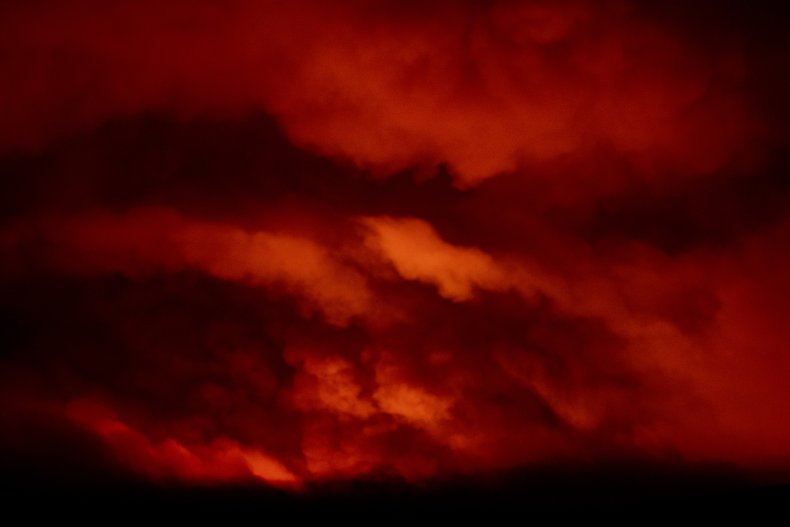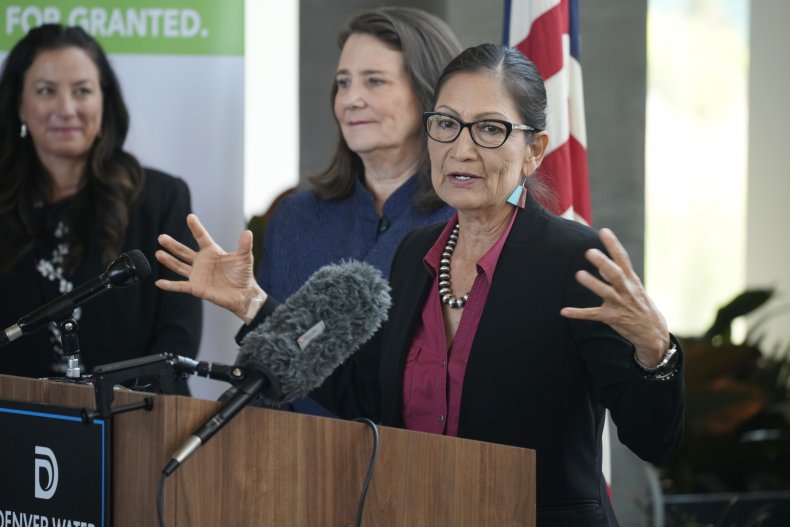2020 U.S. Wildfires Burned Over 10 Million Acres, Nearly 18,000 Structures: Report
U.S. wildfires burned over 10 million acres of land in 2020 and nearly 18,000 structures, including homes, according to federal data and a Headwaters Economics report.
Just like last year, wildfires are currently burning throughout the U.S. West and the ultimate damage remains to be seen. Oregon's Bootleg Fire in the state's south is creating mass destruction and is one of the largest that has burned in the state yet, the Associated Press reported. It has scorched a region half the size of Rhode Island.
"California is devastated by worse and worse wildfires each year. Four million acres—more land than the state of Connecticut—burned last year, forcing families across the U.S. to breathe polluted air," wrote Democratic Rep. Katie Porter on Twitter Thursday. "Climate change is a crisis. We must take action."
Wildfires cause the federal government to spend around $2 billion to $3 billion each year.
For more reporting from the Associated Press, see below.

Interior Secretary Deb Haaland is paying her first visit Friday to the new Colorado headquarters of her department's Bureau of Land Management (BLM) after its relocation from the nation's capital by the Trump administration sparked criticism that the move was intended to gut the agency that oversees vast tracts of public lands in the West.
The BLM headquarters has been in staffing turmoil after the 2019 move to Grand Junction, Co. and after four years without a confirmed director. Interior had planned to move more than 320 headquarters jobs to Grand Junction. But agency officials recently confirmed that only three workers ultimately relocated. The revelation was first reported by the media outlet Colorado Newsline.
Haaland is reviewing whether the move should stand. Proponents of the move called it a reorganization that put top agency officials closer to the nearly quarter-billion acres of public lands it oversees. Environmental advocates say it weakened the agency which handles fossil fuel extraction, recreation and livestock grazing. As a member of Congress, Haaland opposed the move.
In Grand Junction, Haaland also planned to address the federal government's wildfire preparedness and response efforts.
Extremely dry conditions and recent heat waves tied to climate change have made wildfires harder to fight. Climate change has made the West much warmer and drier in the past 30 years and will continue to make weather more extreme and wildfires more frequent and destructive.
U.S. officials have said they will try to stamp out wildfires as quickly as possible to avoid conflagrations such as the Bootleg Fire. The administration also wants to vastly expand the amount of land where tree thinning, controlled burns and other measures are used to reduce flammable material.
The administration is seeking a nearly 40 percent increase, to $1.7 billion, in additional funds for managing fire dangers through thinning, controlled burns, and related projects.
Democratic Gov. Jared Polis and Colorado's congressional delegation have urged the Biden administration to keep the BLM based in Grand Junction. Democratic U.S. Sen. John Hickenlooper, who invited Haaland to visit Grand Junction, has said the headquarters relocation was "done in haste" and let down the city, which hoped for an economic boost.
The bureau has close to 10,000 employees, most of them in field offices in the West.
President Joe Biden's nominee to lead the BLM, Tracy Stone-Manning, received no Republican support in a Senate Energy and Natural Resources Committee vote on her nomination Thursday. The GOP has lambasted Biden's pick over alleged links to a 1989 environmental sabotage investigation.
Stone-Manning will face a full Senate vote in order to become the new director. It would take every Senate Republican plus at least one Democratic lawmaker to block her confirmation in the evenly divided chamber. Haaland, who would be Stone-Manning's boss, reiterated her full support for the nominee after Thursday's vote.


